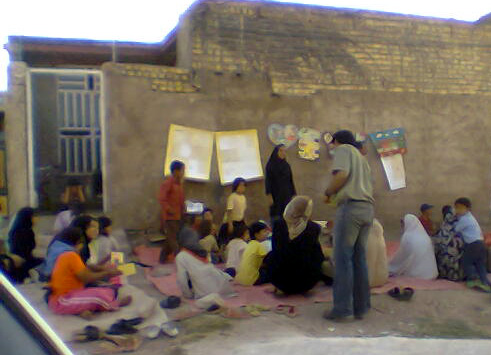Photo From: Bahai.org
Following the attacks in San Bernardino, Paris, and Brussels, many western nations have exhibited growing support for surveillance in neighborhoods with large Muslim populations. The struggle between privacy and security continues to intensify as terrorist attacks become more frequent across the globe. Many argue that as a protection against domestic terrorism, governments should be acutely aware of everything in Muslim neighborhoods and use every resource at their disposal to achieve this end.
As long as I can remember, my family has dealt with domestic surveillance solely because their belief in the Baha’i Faith. Since I was a child, my parents have always been cautious about the words they use when speaking to our relatives in Iran. Despite doing nothing wrong, our relatives in Iran would often speak in roundabout ways when discussing the Baha’i Faith or the effects of persecution on their living conditions. We are conscious that anything we say can be used against them and create difficulties in their lives. Surveillance is omnipresent in the life of every Iranian Baha’i.
My parents left Iran as refugees in the midst of the Islamic Revolution in 1979. Their lives were threatened, causing them to make the difficult decision to leave their families at a young age and to immigrate to the United States. The newly established Islamic government began a systematic campaign to eliminate the influence of the Baha’i Faith, which is the largest religious minority in Iran. The State sought to achieve its goal by executing hundreds of Baha’is, systematically denying the Baha’i community education and employment and seizing Baha’i owned properties and bank accounts. Most recently, in the past decade, efforts to identify and surveil Baha’is in Iran has intensified.
On October 29th 2005, a letter from the Iranian military headquarters to various Revolutionary Guard and police forces instructed them to “identify” and “monitor” Baha’is around the country. On August 19th 2006, Iran’s Ministry of the Interior ordered relevant offices to “cautiously and sensitively monitor and supervise” all Baha’i social activities.
The most ironic aspect of the persecution of Baha’is in Iran is that they could be the Iranian government’s greatest ally in the advancement and progress of the country. Baha’is in Iran long for the opportunity to serve their fellow countrymen, as it is a basic tenant of their Faith. Rather than utilizing the zeal of an entire religious community to improve their nation, the Iranian government has sought a policy, motivated by fear and mistrust, to isolate Baha’is from Iranian society.
Governments in Europe and the United States currently face a similar dilemma with the Muslim populations in their countries. There are two competing courses of action which will set the stage for generations to follow. The first is a path of alienation and the second path is one of inclusion.
While many would argue that alienating an entire religious community only strengthens the appeal of extremism and breeds a new generation of terrorists, I tend to view the effects of alienation differently. I believe that an overwhelming majority of Muslims would never turn to terrorism despite how poorly they were treated by the government. The greatest threat of surveilling people based on their religion is not the creation of terrorists, but the severing of trust with a segment of the population that is essential in the fight against terrorism.
As shown in the chart above, Muslims are the greatest victims of terrorism and have the most to gain from its eradication. Terrorism is not Islam, nor would it be fair to call the perpetrators of terrorism Muslims. There are millions of dedicated Muslims in the world who adhere to the central tenants of the Quran and work for peace and justice. To discredit the integrity of an entire faith because of the actions of individuals that have contaminated it with their own self-interests would be ignorant and unjust. Before we are quick to rush to judgment about Muslims, it behooves us to investigate the Quran and its teachings and not the actions of a group of individuals. Just as we would like to be judged on our own merits as individuals, the Muslim community deserves the same opportunity.
The surveillance of Muslim populations is an unnecessary short term solution with dire long term consequences. To surveil someone implies that they have something to hide. A wife surveils her cheating husband, the police surveil drug dealers. The first step of understanding what is happening in these communities is not surveillance but collaboration. Monitoring phone calls of individuals to understand what is happening in their neighborhoods is lazy and counterproductive when they would openly invite you over for tea. The governments of Europe and the United States have a powerful ally latent in their populations, which they are currently threatening to lose in a haphazard way.
The relationship between a government and its citizens is paramount. And trust is difficult to regain once lost. If we expect the Muslim populations in the United States and Europe to collaborate with their governments to combat extremism, we must protect the sliver of trust that still exists before it’s too late. Without a basic degree of respect, compassion and humility, no collaborative relationship can thrive, including the relationship between a community and its government.
Edited by: Marcos Duran


